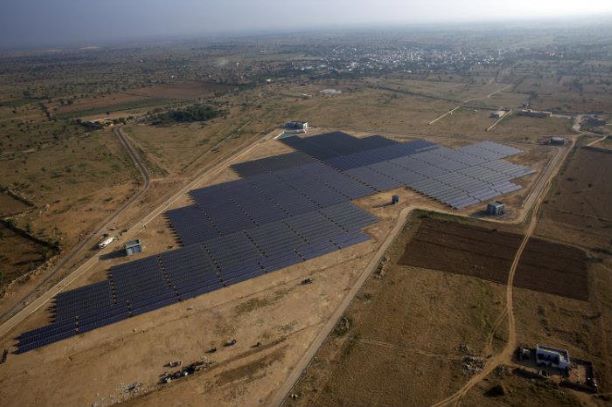

More to come
The Rajasthan Renewable Energy Corporation Limited (RRECL), has issued its draft Solar Energy Policy 2019 along with wind-solar hybrid Energy Policy. The policy aims to deploy 25 GW of solar energy capacity in the state by 2020-2021 and 50 GW over the next 5-6 years in order to meet the renewable purchase obligations (RPOs) of the different Discoms in the state.
The state’s renewable energy agency has opened the draft for comments and suggestion from stakeholders, who have until September 20, 2019, to submit their views.
The department stated that Rajasthan receives maximum solar radiation intensity in India with very low average rainfall. It also has desert and uncultivated land in abundance. Therefore, it is quickly emerging as the global hub for solar power in the country. And to tap the potential of the emerging revolution in solar energy, the state government has decided to review the existing Rajasthan Solar Energy Policy, which was issued in 2014.
The draft policy claims that the vision behind it is to create an enabling environment for harnessing the maximum potential of solar energy through the state, private enterprises, public-private partnerships and through individual efforts. And to evolve new technologies in solar energy generation and its application through the participation of farmers, industries and public at large to boost the economy of the state.
The objective of the policy is to establish Rajasthan as a National leader in solar energy in a phased manner by creating the policy framework for promoting the use of solar energy in various applications and move towards achieving following objectives:
I.Developing a global hub of solar power of 50GW Capacity in the next 5-6 years to meet energy requirements of Rajasthan and India,
II. Contributing to the long term energy security of Rajasthan as well as ecological security by a reduction in carbon emissions,
III. Productive use of abundant wasteland, thereby utilising the un-utilised/ underutilised land for the creation of a solar hub,
IV. Creation of skilled and semi-skilled manpower resources through promotion of technical and other related training facilities,
V. Creating a Research and Development (R&D) hub for deployment of various combinations of RE power technologies and Wind-Solar based hybrid, co-generation technologies which will focus on improving efficiency in existing applications and will reduce the cost of balance of system.
VI. To achieve a target of 25 GW in the state out of the target of 100 GW capacity grid-connected solar power projects in the country up to 2021-22.
To know more click here
Published with permission from Saur Energy
In a significant move toward advancing green energy and industrial growth in the state, Himachal…
Golabl chemical conglomerate BASF has announced that its now offering the world’s first biomass-balanced polyethersulfone…
In a crucial stint to bolster the biogas sector and sustainable dairying in the country,…
TotalEnergies SE has received approval to proceed with its Middlebrook solar and battery project in…
Andhra Pradesh Chief Minister Chandrababu Naidu has inaugurated the Rs 1,000-crore green hydrogen plant of…
The BITS Pilani has developed an innovative solution for managing landfill leachate, domestic septage, and…